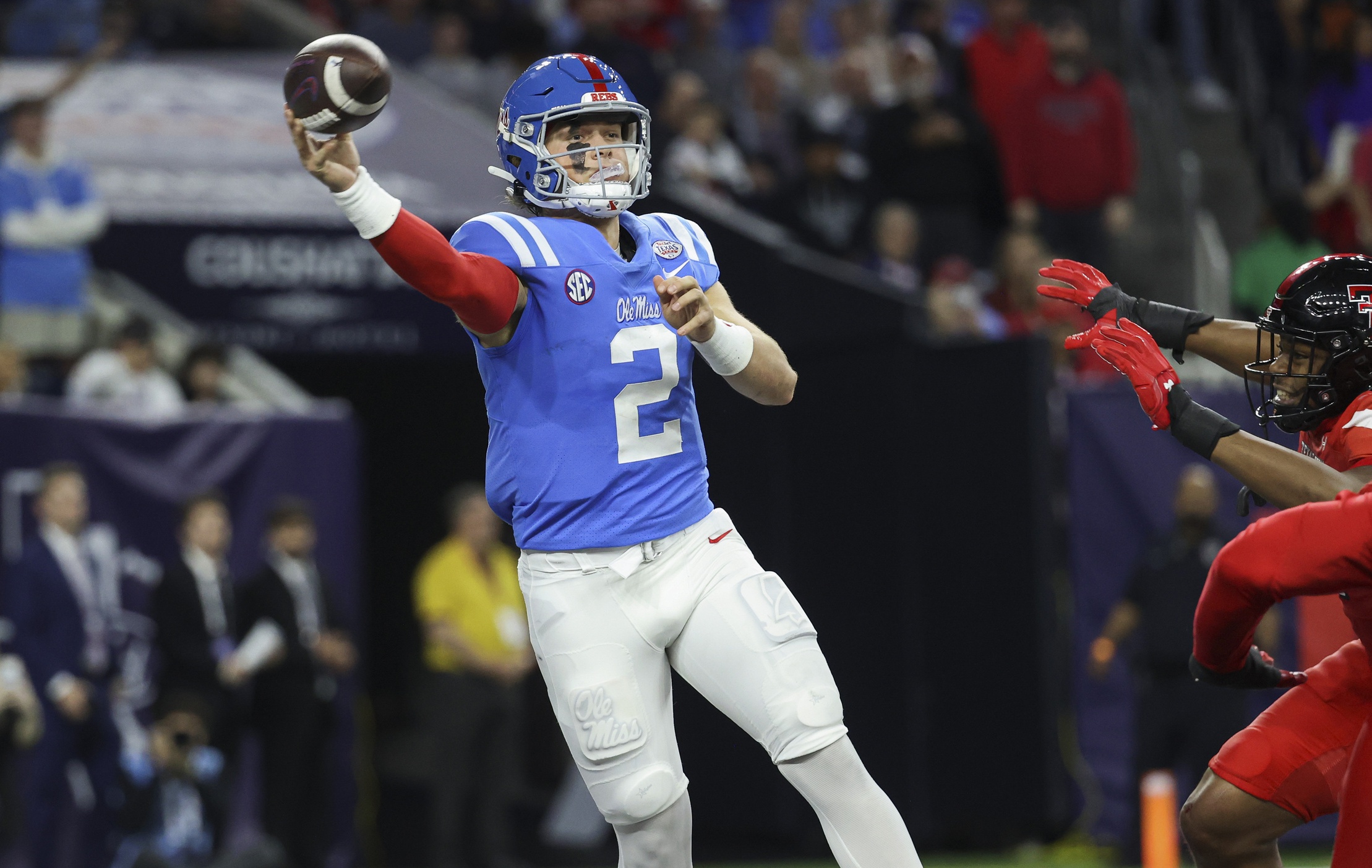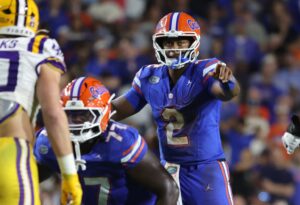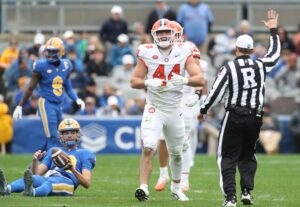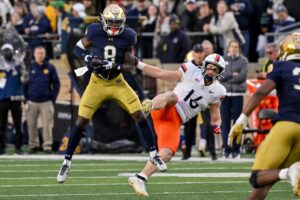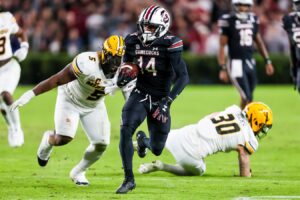The Ole Miss QB room is going to be crowded this season, and the QB competition is going to be intense.
Last year’s starter, Jaxson Dart, is returning, which is certainly a boost for the Rebel offense. But arguably bigger news in Oxford this off-season was the addition of two high-profile quarterbacks through the transfer portal. Barely a week after the season ended, LSU backup Walker Howard announced that he was leaving Baton Rouge in order to play for Lane Kiffin.
Then, the very next day, Oklahoma State starter Spencer Sanders did the same.
While this was great news for Ole Miss, the immediate question became: who starts? And while that’s certainly the most direct question to come from the transfers, there’s a more important one to ask.
The bigger question is whether or not the starter, whomever it may be, can turn raw talent into success.
Despite all three being four-star recruits out of high school, they’ve all struggled to see consistent success since then. Is this the year that finally changes?
Jaxson Dart
For Dart, a former USC starter and last year’s starter at Ole Miss, the question is consistency. Through his two years as a starter, he’s shown remarkable playmaking ability and extreme toughness. He’s also shown dangerous levels of inconsistency. While his career completion percentage sits right around 62%, his decision-making can be problematic at times. For his career, he’s thrown 16 picks on 551 career attempts (or one every 34 passes, on average.) That’s a number that certainly isn’t atrocious. But in terms of the eye test, you realize that the interception number could easily be a lot higher.
All of that being said, the question with Dart becomes whether his ability to escape the pocket when the offensive line breaks down (which happens fairly often with this group in pass protection), is worth the risk that he provides if things aren’t going right. The reward was higher than the risk last year, but with a more competitive quarterback room, the same may not apply this season.
Spencer Sanders
For the Oklahoma State transfer, the questions are virtually identical, with the added concern being injuries. While he has more experience, Sanders is sitting on a career completion percentage of 61%, with a slightly worse interception ratio (40 interceptions on 1,253 career attempts, or 1 every 31 passes). That shows that the experience hasn’t increased his ability as a passer, which could be concerning for Kiffin.
The positive news is that he does have slightly better rushing numbers than Dart, despite similar styles of play.
The other downside is that he’s been injury prone throughout his entire career, even at the high school level. Late in his junior season at Billy Ryan High School, Sanders tore his ACL, but managed to rebound in a major way. He won the Gatorade Player of the Year and Mr. Texas Football Player of the Year awards as a senior.
In his time at Oklahoma State, he was sidelined multiple times, luckily for more minor injuries. The latest of these came midway through last season when he missed a substantial amount of time with a shoulder issue. This injury history, and the unknown recovery from the shoulder injury, could create pause amongst the Ole Miss coaching staff.
Another question to keep in mind about Sanders is whether the defenses he would face in the SEC could pose a problem. In the Big 12, he faced one or two elite-level defenses. This year, the Ole Miss schedule includes games against Georgia, Alabama, LSU, and Texas A&M. Nothing he faced at OSU matches up with the gauntlet he would face this season.
If 100%, Sanders is likely to end up winning the Ole Miss quarterback competition. If not, his career could be at a crossroads.
Walker Howard
This brings us to the unknown: LSU transfer Walker Howard.
Howard is a redshirt freshman transfer who played in only two games for the Tigers last year. In those two games, he only threw four passes, completing two. After the season, he announced that he was entering the transfer portal, where he subsequently committed to Ole Miss.
From a pure passing standpoint, there’s a good chance Howard is the best quarterback on the roster. However, he seemingly lacks some of the dual-threat potential that Dart and Sanders both have. For many programs, this would be okay. For a Kiffin-led offense, a dual-threat quarterback is virtually a necessity.
That concern, and the lack of experience, likely puts him at the bottom of the totem pole.
The good news for the Rebels is that the eventual quarterback should have eased pressure on him. Their rushing attack led the SEC last season, and that shouldn’t change much this year. Leading rusher Quinshon Judkins (1,567 rushing yards as a freshman) returns for his sophomore season and is certainly going to shoulder a heavy load within the offense.
The winner of the Ole Miss quarterback competition will be surrounded by talent, regardless of who gets the nod. Only time will tell if they manage to turn that talent and opportunity into personal, and team, success.
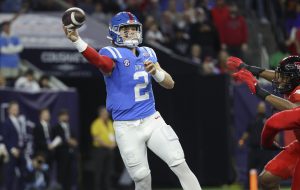
Photo courtesy: Troy Taormina-USA TODAY Sports


